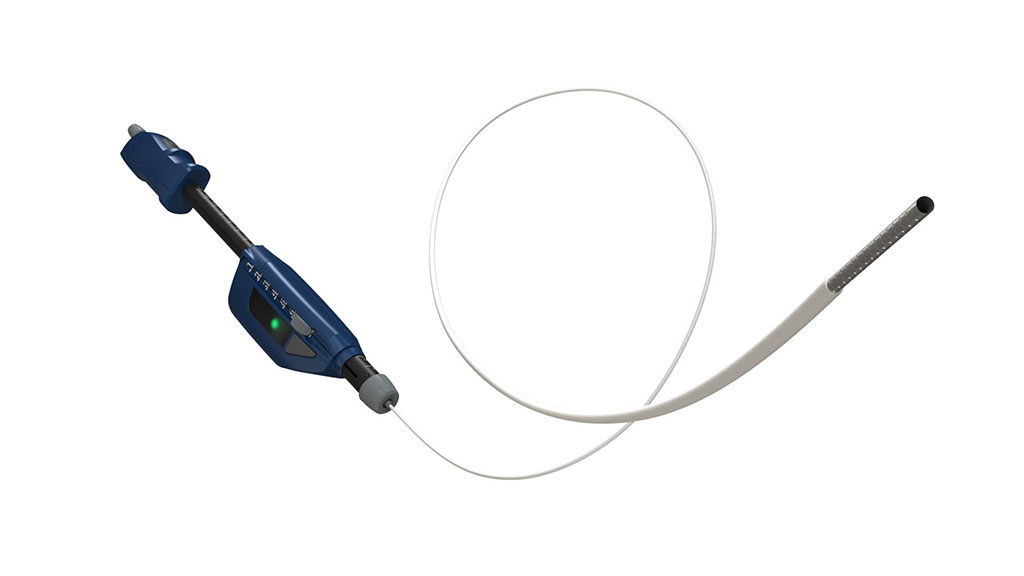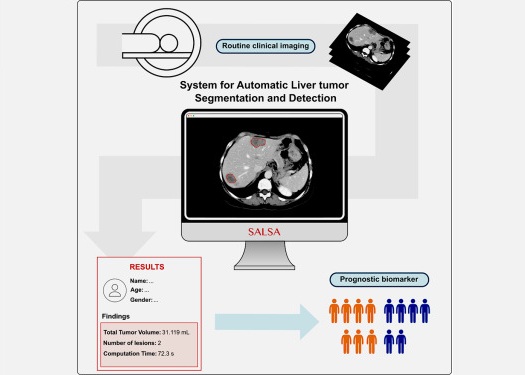Breakthrough Endoscopic Biopsy Device Enables Definitive Diagnosis of GI Cancers
|
By MedImaging International staff writers Posted on 13 Sep 2023 |

Endoscopic biopsies serve a crucial role in the precise and timely treatment of cancer by allowing for histologic and genetic testing of tissues. The traditional tools used for these procedures are manual Endoscopic Ultrasound (EUS) needles, which come with several drawbacks. They often throw up several challenges like inconsistent biopsy results, dependency on high-level skills, low standardization, multiple needle passes, suboptimal tissue samples for analysis, and higher rates of insufficient tissue during molecular testing. Now, an automated, motorized endoscopic biopsy device has the potential to improve biopsy results for the evaluation of gastrointestinal (GI) malignancies.
Limaca Medical (Yokneam, Israel) has developed the Precision GI EUS biopsy device, marking a major leap forward in obtaining biopsies for a confirmed diagnosis of pancreatic and other severe GI cancers. Unlike existing tools, this automated device is engineered to more efficiently and effectively diagnose GI cancers by securing substantially better quality and greater amounts of biopsy tissue that is crucial for diagnosis. Traditional endoscopic biopsy devices often fall short in consistently collecting quality and adequate tissue samples, leading to issues like fragmented tissue, insufficient volume, and blood contamination.
Physicians are increasingly favoring the Precision GI EUS biopsy device over older endoscopic biopsy tools because of its capability to obtain higher quality and larger tissue samples necessary for in-depth histological and molecular examinations. Furthermore, the device standardizes outcomes, making it effective across a wide range of physician skill sets. The U.S. Food and Drug Administration (FDA) has given 510(k) clearance to Limaca's Precision GI EUS biopsy device, following the company's earlier FDA Breakthrough Device Designation for the same product.
"Our first series of patients have demonstrated that Precision GI enables obtaining contiguous intact core tissue samples adequate for definitive diagnoses of pancreatic lesions,” said Assaf Klein, Limaca CEO. “The clean, non-contaminated tissue samples provide a high percentage of tumor content, with less blood and extraneous fluids. FDA clearance allows us to bring Precision GI to market to fulfill our mission to always achieve precise, efficient, and definitive biopsy samples."
"We are pleased with FDA's clearance of Precision GI, following our FDA Breakthrough Device Designation,” added Carl Rickenbaugh, Limaca Vice Chair. “We are dedicated to our mission to provide a far better endoscopic biopsy experience for the endoscopist and patient, with the goal of achieving faster, more efficient biopsy yield with highly consistent results. We look forward to soon bringing Precision GI to patients in the US."
Related Links:
Limaca Medical
Latest Surgical Techniques News
Channels
Radiography
view channel
AI Improves Early Detection of Interval Breast Cancers
Interval breast cancers, which occur between routine screenings, are easier to treat when detected earlier. Early detection can reduce the need for aggressive treatments and improve the chances of better outcomes.... Read more
World's Largest Class Single Crystal Diamond Radiation Detector Opens New Possibilities for Diagnostic Imaging
Diamonds possess ideal physical properties for radiation detection, such as exceptional thermal and chemical stability along with a quick response time. Made of carbon with an atomic number of six, diamonds... Read moreMRI
view channel
New MRI Technique Reveals True Heart Age to Prevent Attacks and Strokes
Heart disease remains one of the leading causes of death worldwide. Individuals with conditions such as diabetes or obesity often experience accelerated aging of their hearts, sometimes by decades.... Read more
AI Tool Predicts Relapse of Pediatric Brain Cancer from Brain MRI Scans
Many pediatric gliomas are treatable with surgery alone, but relapses can be catastrophic. Predicting which patients are at risk for recurrence remains challenging, leading to frequent follow-ups with... Read more
AI Tool Tracks Effectiveness of Multiple Sclerosis Treatments Using Brain MRI Scans
Multiple sclerosis (MS) is a condition in which the immune system attacks the brain and spinal cord, leading to impairments in movement, sensation, and cognition. Magnetic Resonance Imaging (MRI) markers... Read more
Ultra-Powerful MRI Scans Enable Life-Changing Surgery in Treatment-Resistant Epileptic Patients
Approximately 360,000 individuals in the UK suffer from focal epilepsy, a condition in which seizures spread from one part of the brain. Around a third of these patients experience persistent seizures... Read moreUltrasound
view channel.jpeg)
AI-Powered Lung Ultrasound Outperforms Human Experts in Tuberculosis Diagnosis
Despite global declines in tuberculosis (TB) rates in previous years, the incidence of TB rose by 4.6% from 2020 to 2023. Early screening and rapid diagnosis are essential elements of the World Health... Read more
AI Identifies Heart Valve Disease from Common Imaging Test
Tricuspid regurgitation is a condition where the heart's tricuspid valve does not close completely during contraction, leading to backward blood flow, which can result in heart failure. A new artificial... Read moreNuclear Medicine
view channel
Novel Radiolabeled Antibody Improves Diagnosis and Treatment of Solid Tumors
Interleukin-13 receptor α-2 (IL13Rα2) is a cell surface receptor commonly found in solid tumors such as glioblastoma, melanoma, and breast cancer. It is minimally expressed in normal tissues, making it... Read more
Novel PET Imaging Approach Offers Never-Before-Seen View of Neuroinflammation
COX-2, an enzyme that plays a key role in brain inflammation, can be significantly upregulated by inflammatory stimuli and neuroexcitation. Researchers suggest that COX-2 density in the brain could serve... Read moreGeneral/Advanced Imaging
view channel
CT-Based Deep Learning-Driven Tool to Enhance Liver Cancer Diagnosis
Medical imaging, such as computed tomography (CT) scans, plays a crucial role in oncology, offering essential data for cancer detection, treatment planning, and monitoring of response to therapies.... Read more
AI-Powered Imaging System Improves Lung Cancer Diagnosis
Given the need to detect lung cancer at earlier stages, there is an increasing need for a definitive diagnostic pathway for patients with suspicious pulmonary nodules. However, obtaining tissue samples... Read moreImaging IT
view channel
New Google Cloud Medical Imaging Suite Makes Imaging Healthcare Data More Accessible
Medical imaging is a critical tool used to diagnose patients, and there are billions of medical images scanned globally each year. Imaging data accounts for about 90% of all healthcare data1 and, until... Read more
Global AI in Medical Diagnostics Market to Be Driven by Demand for Image Recognition in Radiology
The global artificial intelligence (AI) in medical diagnostics market is expanding with early disease detection being one of its key applications and image recognition becoming a compelling consumer proposition... Read moreIndustry News
view channel
GE HealthCare and NVIDIA Collaboration to Reimagine Diagnostic Imaging
GE HealthCare (Chicago, IL, USA) has entered into a collaboration with NVIDIA (Santa Clara, CA, USA), expanding the existing relationship between the two companies to focus on pioneering innovation in... Read more
Patient-Specific 3D-Printed Phantoms Transform CT Imaging
New research has highlighted how anatomically precise, patient-specific 3D-printed phantoms are proving to be scalable, cost-effective, and efficient tools in the development of new CT scan algorithms... Read more
Siemens and Sectra Collaborate on Enhancing Radiology Workflows
Siemens Healthineers (Forchheim, Germany) and Sectra (Linköping, Sweden) have entered into a collaboration aimed at enhancing radiologists' diagnostic capabilities and, in turn, improving patient care... Read more





















